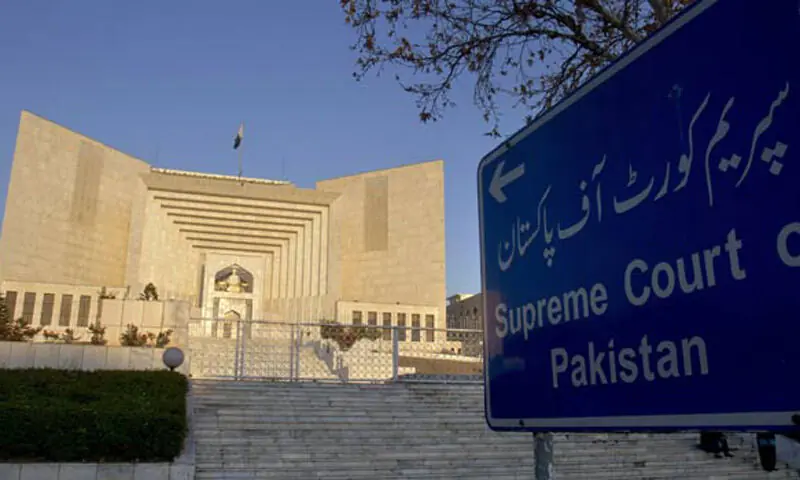• Govt imposed Super Tax merely to give itself ‘fiscal space’, counsel argues
• Says state can readily meet targets by aligning its spending with constitutional and legal provisions
ISLAMABAD: Arguing against the Super Tax, senior counsel Ahmed Jamal Sukhera told the Supreme Court’s Constitutional Bench (CB) on Monday that the Constitution does not permit arbitrary action, including legislation.
Headed by Justice Aminuddin Khan, the CB was hearing several challenges filed by different taxpayers questioning the constitutional vires of the amended Section 4C of the Income Tax Ordinance (ITO), 2001 implemented for the tax year 2023.
Representing Fauji Fertilisers, Mr Sukhera contended that the levy was imposed by the federal government to raise Rs215 billion, merely because it was seeking fiscal space.
In the previous year, the government had imposed taxes of Rs350 billion through sales tax, which was even collected on matchsticks. According to a policy statement, he claimed that this measure had pushed some people below the poverty line.
Therefore, this year, the government had considered taxing high-earning individuals on the grounds that they had made windfall profits, and decided that the solution for fiscal space was to impose a super tax on them, the counsel said.
The counsel stated that only two factors were considered when imposing the super tax: firstly, that the sales tax imposed last year to raise Rs215bn had an inflationary impact; and second, that high-earning persons had made windfall profits and could be taxed to raise the additional Rs215bn.
No other factor was considered, according to the policy statement submitted by the government in its pleadings, the counsel argued, adding that as per reports of the cabinet and the World Bank, fiscal space of up to Rs1.7tr annually could be created simply by aligning federal government spending with constitutional and legal provisions.
The counsel cited seven examples. He said state-owned enterprises incur losses between Rs600 to Rs800bn annually, so the required Rs215bn could instead be raised by curtailing those losses.
Secondly, the federal government continues to spend on subjects devolved to the provinces under the 18th Amendment, which is not aligned with the Constitution. As per the World Bank report, Rs328bn could be saved this way. Moreover, adopting a treasury single account could save another Rs404bn, according to the same report.
The fourth example he gave was that, according to the federal government figures, electricity thefts and related losses amount to Rs600bn annually. Reducing this loss by just Rs215bn could spare high earning taxpayers from the super tax.
Fifthly, under the Fiscal Responsibility and Debt Limitation Act, 2005 (FDRLA), the federal fiscal deficit should not go beyond 3.5 per cent of Gross Domestic Product (GDP) and the debt-to-GDP ratio should not exceed 60pc. Both these limits have been consistently breached since 2016.
In case of non-compliance, the FRDLA requires the federal government to take corrective measures, including curtailing expenditures from the Federal Consolidated Fund, to return to the debt reduction path within two financial years.
This means that if the debt-to-GDP ratio is not maintained within the prescribed limit, the government must curtail its expenses. However, instead of doing so, the government continues to borrow, and the resulting interest payments — incurred in violation of statutory requirements — are shifted onto existing taxpayers by either increasing tax rates or imposing new taxes.
Mr Sukhera argued that the government is constitutionally and legally bound to spend public money as a fiduciary and trustee of the people of Pakistan, in their best interest. Public money, he stressed, must not be wasted year after year without accountability. He further argued that it was high time the government was compelled to curtail its expenses so that existing taxpayers are not burdened with additional taxes through no fault of their own.
Published in Dawn, September 23rd, 2025
